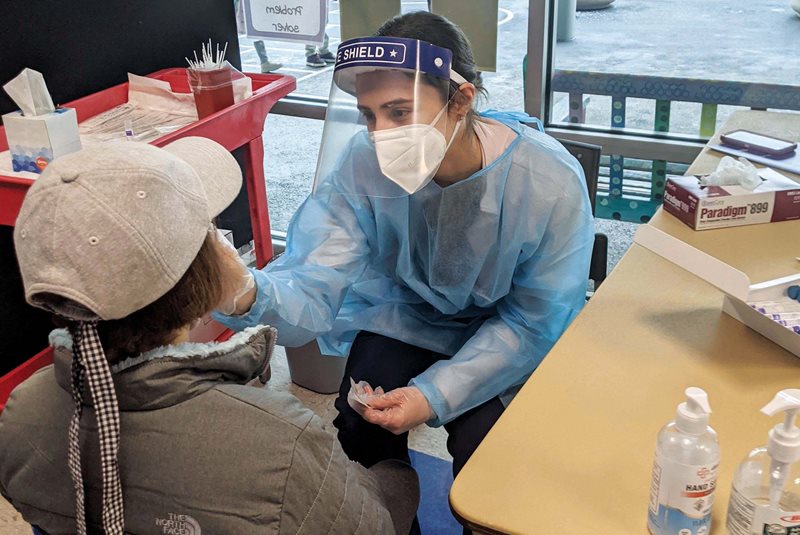When the school opened for in-person learning in October 2020, there was no testing protocol in place. Head of School Suzanna Jemsby knew that she wanted to institute a program, and she was receiving regular inquiries from companies that wanted to work with the school. But an email from a WIS parent who is a public health professional asking whether the school would be interested in participating in a testing study caught her attention. Jemsby enlisted two board members with public health expertise to assess the opportunity. After conducting their due diligence, they advocated in favor of the program, and Jemsby decided to move forward with the study and partnership opportunity. Prior to the launch date, the school administration held frequent briefings with parents to answer their questions about privacy, frequency of testing, and procedures for positive cases. By late November, everything was in place to begin.
Using the protocols based on the study design, the school is able to administer tests accurately and affordably. Swabs (usually about 10 to 16) are combined into a pool for testing and processed with a single-use PCR test device, which returns results in 27 minutes. Since the school is on a hybrid schedule, students are tested twice during the week they are at school in person, and faculty are tested once each week. The school nurse, or other administrator who has been trained, oversees the process. The school shares anonymized data with the study partners after each testing round.
One of the most appealing aspects of the protocol is its affordability—pooling samples can dramatically lower the cost per individual. Another part of the appeal of participating in the study was the potential to assist other schools in reopening; WIS administrators have spoken to other schools and districts to share lessons learned. The program has significantly enhanced community members’ comfort with in-person learning, and the school has experienced no COVID-related closures since opening in the fall.

A nurse assists with swabbing for primary school students.
What’s happening at your school? Share your story with us at [email protected].